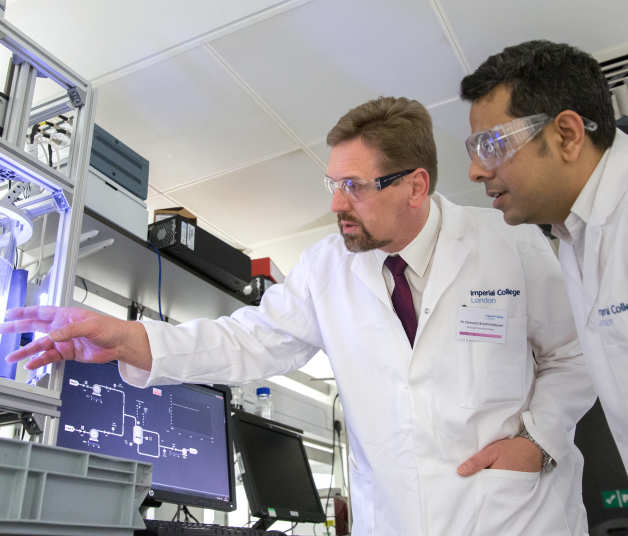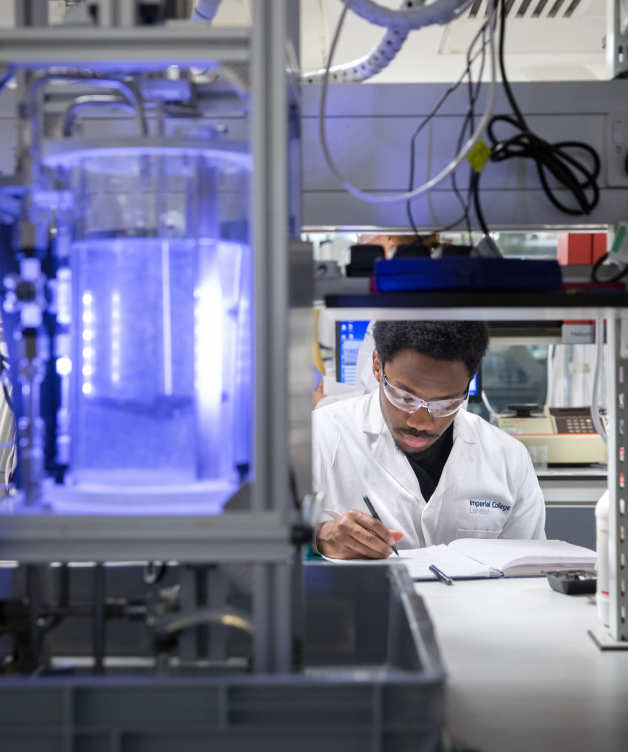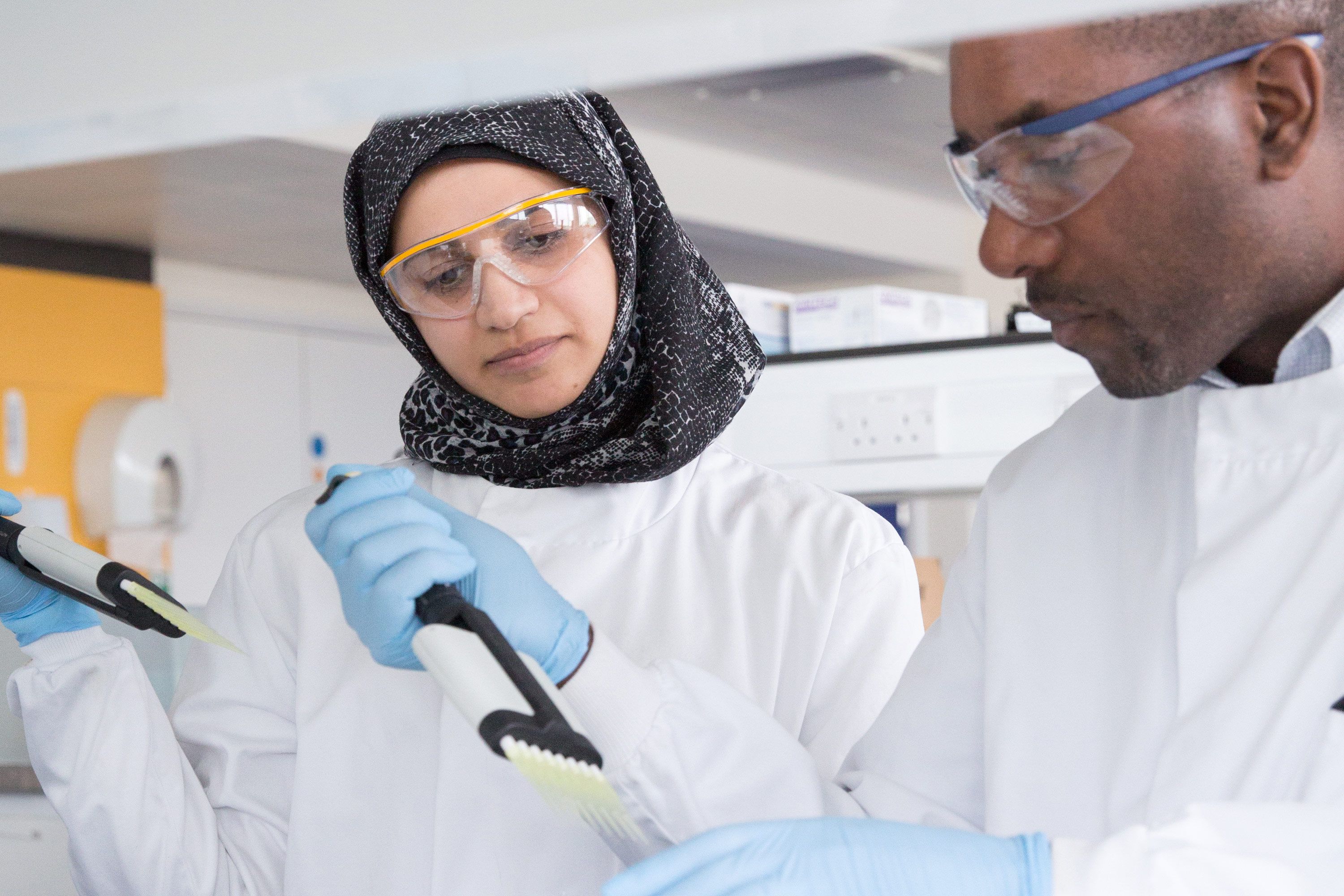 Dr Clemens Brechtelsbauer knows from experience that chemical engineering graduates have not always been prepared for the world of work. This is because he spent 13 years in the pharmaceutical industry before joining Imperial.
Dr Clemens Brechtelsbauer knows from experience that chemical engineering graduates have not always been prepared for the world of work. This is because he spent 13 years in the pharmaceutical industry before joining Imperial.
“I often found graduates from the UK were lacking the necessary skills and I ended up choosing graduates from Europe instead,” says Dr Brechtelsbauer.
When he began at Imperial in 2010, Dr Brechtelsbauer was asked to take an objective look at the practical curriculum. His review coincided with a £10 million investment by the College in a new 1,000m2 lab floor and the construction of a pilot plant – a scaled-down version of an industrial chemical plant.
“I had the rare opportunity to completely overhaul the practical element of the chemical engineering degree. This is important because chemical engineering is a practical subject.
Student comments
“We are able to experience what true research would be like."
"It was the best project I have done to date.”
“My approach was to start with the end in mind, asking what is desirable in graduates?”
To help him deliver the new practicals, Dr Brechtelsbauer hired two new staff - a pilot plant manager and a teaching lab manager. He also worked with Imperial’s Educational Development Unit to train a team of graduate teaching assistants. These are postgraduate students who help deliver the improved lab sessions and, for example, must try out an experiment for themselves before they can assist.
The current teaching lab manager is Dr Umang Shah. He says: “First year students typically come to us straight from school where they are given all the equipment they need as well as a recipe to carry out a practical lesson.
“Our idea is to make them into independent thinkers. To begin with we give them the ‘scaffolding’ for a benchtop experiment but they have to build on that and look for the equipment and techniques they will need.”
By the end of their first year, students are ready to carry out their first independent project where they must build a water-pumping rig within a specified time and budget. “It can’t be gold-plated,” Dr Brechtelsbauer explains. “They are not creating the best rig, but the best possible within time and budget.”
 Through the second and third years, students are asked to tackle increasingly complex practicals, all firmly grounded in real industrial problems. Dr Shah says: “Students should never have to ask themselves: ‘why are we doing this?’ So for example, they use Environment Agency guidelines, which mean water from a plant must be cooled from 100 degrees to 30 degrees before it can be discharged.”
Through the second and third years, students are asked to tackle increasingly complex practicals, all firmly grounded in real industrial problems. Dr Shah says: “Students should never have to ask themselves: ‘why are we doing this?’ So for example, they use Environment Agency guidelines, which mean water from a plant must be cooled from 100 degrees to 30 degrees before it can be discharged.”
The practical curriculum feeds into the final test in the fourth year, when students complete both a research project and a project to design a chemical plant. They might be asked, for example, to plan production of 1,000 tonnes per year of a pharmaceutical drug and present their plan for financial investment. Dr Brechtelsbauer says: “They will need to use all their acquired organisation and planning skills, as well as being able to communicate their ideas. Our approach to practical learning is a world away from a traditional practical where students work in the lab, with little connection to personal development, then go away and just write up a report.”
The first class of students who benefitted from these innovations throughout their studies are just beginning to enter the workplace. But the signs are already good that the new practical curriculum is working, with positive comments from graduates and employers, and with student-rated satisfaction on an upward trajectory.
“The only problem now,” concludes Dr Brechtelsbauer, “is that they are so well-prepared for the world of work, that we are leaking students to jobs in the City where they can earn so much more money than in engineering!”
Sign Up
If you are interested in receiving the Learning and Teaching Newsletter, please email ltstrategy@ic.ac.uk.
You can also view the issue archive online.

